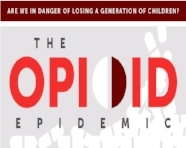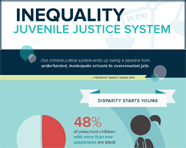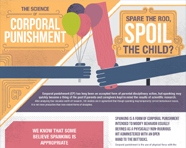
The Family First Prevention Services Act (FFPSA) is a crucial piece of legislation aimed at improving child welfare outcomes for at-risk youth. Our infographic provides key information about FFPSA prevention services, Title IV-E funding and its intersection with Medicaid, as well as other important requirements for improving child welfare outcomes.

Adolescent depression significantly impacts the lives of young individuals, their families, and communities. Our infographic aims to dissect the array of challenges tied to this critical mental health concern while shedding light on the unique experiences of affected adolescents.
Viewhis infogr

Adolescent depression significantly impacts the lives of young individuals, their families, and communities. Our infographic aims to dissect the array of challenges tied to this critical mental health concern while shedding light on the unique experiences of affected adolescents.
Viewhis infogr

The consequences of elevated homelessness and housing instability risk among LGBTQ+ youth in the United States have critical impacts on their mental health. This infographic sheds light on the critical challenges and unique experiences of homeless LGBTQ+ youth.
TViewhis i

Following the larger relative decline in arrests of boys, the percent of arrests involving girls has increased since the 1990s. Research has revealed the various adversities many girls face as well as their unique responses to trauma that place them at risk for entering the system.

Every day, thousands of American youth are placed outside of the home in facilities across the country. Though these out-of-home placements hope to steer youth on the right path, it has been proven that treating a youth outside of their home and community is less effective than treating them in their natural settings. However, statistics show that the amount of youth in confinement is still high.

The Opioid Epidemic is a public health crisis that has been declared a national emergency. This infographic shows the magnitude of the problem, how widespread it is and reveals how devastating it has become for the youth who are caught in the middle of it. Learn more.

This infographic reveals the startling inequalities embedded in the juvenile justice system. The statistics are so shocking and the costs so high, that when you see them, you just might decide to do something about it. Take a look for yourself at this juvenile justice infographic to learn more.

In celebration of Universal Children's Day, we put together a thought-provoking infographic on the consequences of corporal punishment. Ending violence against children—including corporal punishment—is an objective of the United Nations as well as Multisystemic Therapy for Child Abuse and Neglect (MST-CAN).

Virtual environments were integral in the shift to remote work and education. However, a completely virtual world has come with drawbacks, especially in the youth and child welfare system. Throughout the pandemic, there has been a drop in child abuse and neglect reports to Child Protective Services (CPS) in the United States.

The link between mental health disorders and juvenile justice is very complex. Within juvenile detention facilities, there is often a lack of any in-facility screening programs, let alone treatment options. This makes it more necessary than ever to address youth mental health.

Learn more with this data snapshot of the impact of parental substance abuse on child welfare, including research results and impacts of using an evidence-based program to aid families such as the Multisystemic Therapy Building Stronger Families (MST-BSF) adaptation.
3490 Piedmont Rd NE, Suite 304
Atlanta, GA 30305